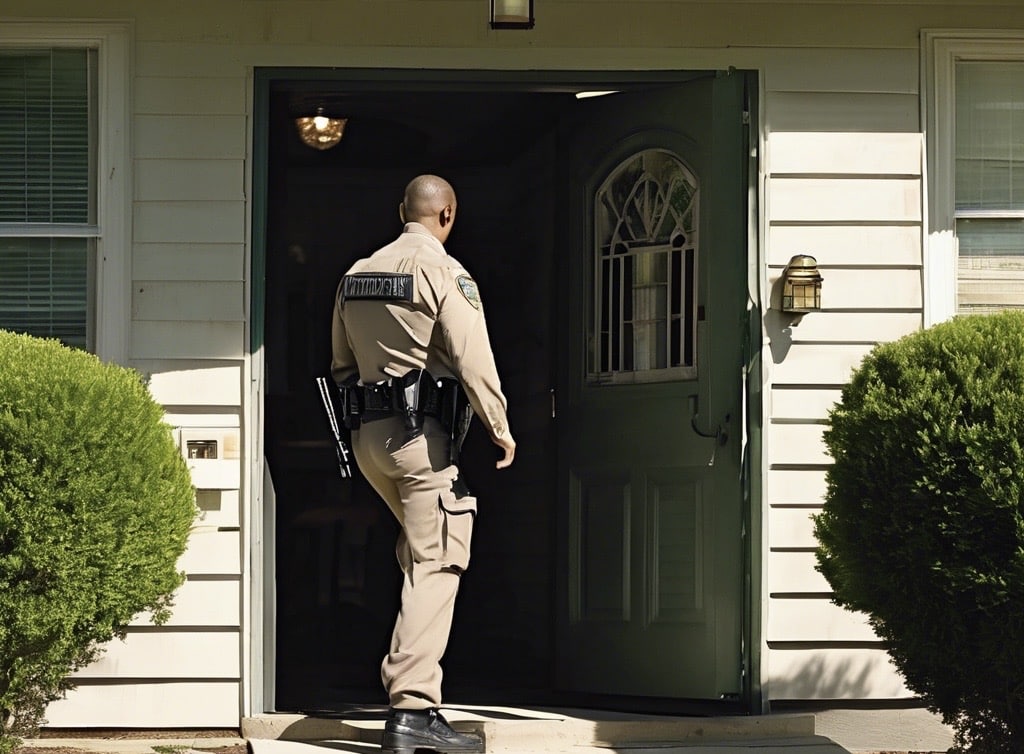
What You Need to Know About Warrantless Entry and Obstruction Charges in Wisconsin
A recent Wisconsin Court of Appeals decision—State v. Ryan D. Wilkie, Appeal No. 2022AP730-CR—clarifies the scope of police authority to enter a home without a warrant during a suspected emergency. This case is especially relevant for anyone facing obstruction or disorderly conduct charges after a domestic disturbance call. The ruling confirms that officers may enter a home without a warrant under exigent circumstances, even if the homeowner refuses.
The Facts: What Happened in State v. Wilkie?
On December 11, 2019, police in Eau Claire responded to a 911 call from a neighbor reporting loud screams and banging noises coming from Wilkie’s home. Concerned about possible domestic violence, officers arrived and asked Wilkie—who answered the door—to let them inside to ensure everyone’s safety.
Wilkie refused entry.
Despite being told that the officers would enter anyway due to safety concerns, Wilkie continued to block their access. Officers ultimately entered the home, arrested Wilkie, and charged him with:
• Obstructing an officer (Wis. Stat. § 946.41)
• Disorderly conduct (Wis. Stat. § 947.01)
Wilkie’s Argument: “You Can’t Enter Without a Warrant”
Wilkie’s defense hinged on a common legal misunderstanding: that police may never enter a private residence without a warrant. He moved to dismiss the charges, arguing that the officers lacked legal authority to enter his home, and therefore, his refusal wasn’t obstruction.
The trial court denied the motion, and Wilkie was found guilty by a jury. He appealed the convictions.
Court of Appeals Ruling: Exigent Circumstances Justified Entry
In March 2025, the Court of Appeals upheld the trial court’s decision, affirming that:
• Police may lawfully enter a home without a warrant when they have an objectively reasonable belief that someone inside is in danger.
• The 911 call, the nature of the sounds, and the possibility of domestic violence created sufficient exigent circumstances to override the usual warrant requirement.
• Wilkie’s refusal to let officers inside—despite their legal authority—constituted obstruction, because the officers were performing their lawful duties.
What This Means for Wisconsin Residents
This case reinforces key legal principles:
• Exigent circumstances—like a possible domestic violence incident—allow police to enter a home without a warrant to protect someone’s safety.
• If officers reasonably believe someone is at risk, courts will generally support their decision to act immediately.
• Blocking entry in these situations can lead to criminal charges, including obstruction of an officer and disorderly conduct.
Charged with Obstruction or Disorderly Conduct After a Domestic Call? DK Anderson, S.C. Can Help
These cases are complex—and the law is highly fact-specific. At DK Anderson, S.C., we’ve defended clients across Dane, Rock, Sauk, Green, and Jefferson Counties in cases involving:
• Allegations of obstruction
• Warrantless home entries
• Domestic disturbance accusations
• Suppression motions and constitutional defenses
If you’re facing charges stemming from a police encounter at your home, don’t assume the situation is hopeless. We can evaluate whether the officers acted within the law, and whether your rights were violated.
Learn more about our violent crime defense services and domestic violence defense.
Talk to a Madison Criminal Defense Attorney Today
Serving Madison, Monroe, Janesville, and the surrounding counties, we’re here to protect your rights.
📞 Call: (608) 204-5807
Common Questions About Warrantless Entry and Obstruction Charges
Yes—if they have a reasonable belief that someone inside is in danger or needs immediate assistance, they can lawfully enter without a warrant.
Even if you believe the officers are mistaken, physically preventing their entry or interfering can result in criminal charges. Your attorney can challenge their actions after the fact in court.
Under Wis. Stat. § 946.41, obstruction includes knowingly resisting, delaying, or lying to law enforcement while they are performing lawful duties. Refusing to let officers enter during an emergency may be considered obstruction.
Our Practice Areas
Drunk Driving
Whether you are charged with a first offense, or a fifth offense, our Wisconsin OWI attorneys can help.
Violent Crimes
A conviction for any one of Wisconsin's violent crimes will have significant consequences.
Drug Charges
Our Wisconsin Drug charge attorneys know the law and how to apply that law in the court room.
Domestic Violence
A conviction for a domestic violence charge in Wisconsin has additional consequences.
Property Crimes
Wisconsin property crimes include theft, forgery, and criminal damage to property.
Sex Offenses
Not much will change your life like a conviction for one of Wisconsin's sex offense charges.
Traffic Citations
Although less serious than a criminal charge, a traffic citation can effect your driver's license.
